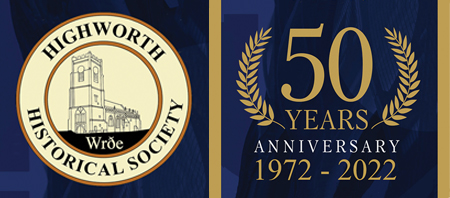Lest We Forget Continued (page 31)
Eventually the time came to embark on another ship, this was a large liner converted to carry hundreds of troops, and many things were set up to pass the time away for them. This was a fast ship, and on the way called in at Diego Suarez on the northern tip of Madagascar, to Zanzibar, Aden, and the Red Sea, finally docking at Suez. From there a convoy of trucks delivered them to a transit camp on the canal side to await posting to their new units. Within a day or so a posting came through, and he joined a squadron being equipped with a new American aircraft. As soon as the Aircrew, and ground crews had got the new planes sorted out, the squadron was posted to a forward airfield in the desert. Ground staff moved off the road through places well known to forces who have served in the desert, Alamein, Daba, Mersa-Matruh, Hellfire Pass and Sollum, Tobruk, Derna, Benghazi and landing strips with no names. This was Ted‘s first experience of a battlefield, and the waste of life, materials, and resources was everywhere.
On return to the canal zone the squadron was sent to the other side of the war in North Africa, taking some of the ground crew with the aircraft, and some did not make it, but Ted was left behind to service the remaining planes. After some months of travelling to various airfields in the desert he returned to the canal to a more civilized way of life on a permanent camp with huts, baths, showers and beds. Not for long this luxury, a posting came through to a Beaufighter squadron who were somewhere near Tobruk. Eventually he found the unit and an airstrip outside Benghazi. After a while he was then posted to a more permanent base near the Suez Canal where major overhauls were being carried out on heavy bombers.
One morning working on an engine platform Ted became dizzy and got down to the ground, sat in the shade for a while and came round four days later in the sick bay, having had a severe attack of sand fly fever, during which he had been delirious, and even violent at times but recovered after a few days. Ted stayed with this unit until 1945, but there were many changes both in crews and the type of work.
When the war moved away from Africa to the other side of the Med, transport aircraft had to be serviced. To handle this change the whole unit moved to a camp on the southern end of the Bitter Lake. For recreation Ted shared a sailing boat called ”Moonraker” with an old friend from Minety, which was good fun on time off work. A raft was moored some way out from the beach, and one day after a spell of night duty Ted swam out to the raft and was sat there dreaming of a pint of Ushers when a head appeared swimming out and came up over the side; Charlie Wheatley from Highworth, some chatter for a while but he had to move on.
Now the unit had settled down to a steady routine, 5.30am to Midday and again in the evening if required. Nothing much happened of interest during these months, plenty of work on all sorts of aircraft but mostly the old DC 3’s that were flying from the Middle East to India and Burma. It was sometimes possible to have a weekend in Cairo or Ismailia, but the highlight was a two week leave in Tel Aviv thanks to his Mothers help with the cash. Ted had to take a turn at running the sergeants mess bar, this lasted for a month and was good experience at accounts and looking after bar staff, who were local people, who had been doing the jobs for a long time.
VE day was an excuse for a real party, a huge bonfire was set up and burned all night, but the booze had run out by morning and only the fat heads were left.
In the summer of 1945 moves were made to handle converted bombers to bring troops home from the Far East, this entailed setting up staging posts, the unit was dispersed to all stations in the Med area. Ted had a lucky draw and was sent to Malta via an empty transit camp at Alexandria where the detachment assembled to go by boat to Valletta. The unit then reported to Malt HQ where they were fixed up with a beds and rations at Luqa airfield.
Eventually the troop planes began to arrive and time was fully taken up with servicing the planes for the flights to UK. Flights from Lyneham in Wiltshire were also handled on the way out to India and back. Crews stopped over at Luqa so Ted was able to get some local news, and made friends with some of the crews.
Ted had a call one day to say that some transport had arrived at Kalafrana Dock for his detachment, would he go to check it out. He went off in a station truck to the dock, the chap on the parking lot said to see the flight sergeant. In his office was Peter Miles who had been at the garage in Swindon as an apprentice. There was enough transport to equip a squadron, from motorbikes to articulated Queenmary’s, more trucks and vans than drivers.
Ted took over a dispersal site on the far side of the field and found, that it was previously used by the squadron which he had left at Benghazi years before. Time soon came round when the question of home leave was being talked about, this did not apply to the lads from the detachment and Ted had to do some fast talking to have them included on the lists. Demob groups were being published and his was in the early ones. When the boat date came up a great party was organised and effects were still there when the party embarked.
This was a French cruise ship, which was well crowded. On the way a storm blew up, the decks were awash, kit was floating and many were sick including the ship’s captain. The French coast came in sight with some relief even if some miles off course but at last docked at Toulon. Trains were loaded up with all those going home for demob and set off across France. This took several days and finished in Dieppe. After a night here and being sorted out into groups they boarded a ferry to Folkstone with thick fog in the Channel. From Folkstone they were moved and came to Hornchurch to be billeted in a new hospital near the airfield. There was plenty of hot water and huge baths, which were welcome after days of travel. Ted soaked until the water was cold. Food was supplied at the camp opposite and the NCO in charge of the mess turned out to be a pal who was cook at the mess from two years earlier. There was a lot of chat about old times and friends, and by surprise some very fine beef steaks appeared, the best Ted had eaten for years. He was sent on leave with orders to report to a demob centre near Stafford. His overseas service lasted from July 1942 to February 1946 and after some weeks leave was demobbed on April Fools Day 1946 with ninety days leave which was included in his total service and ended on the 8th July 1946. Ted has many memories of incidents and people, some good and some not so good and some best forgotten and is very thankful to be a survivor.
Ted‘s brother Bob Stranks, joined the police when he was eighteen years old, and did duty in Gloucester, Bristol, Tewkesbury and Twyning. When war came he was stationed at Filton, then Staplehill. He was a keen sportsman playing football and cricket, but his main interest was athletics and as a runner and high jumper he represented his force in the national police games.
Despite his efforts he was not allowed to leave to join the forces but when his mother, Mrs Mabel Stranks, was ill during the war he was given extended leave at the request of Auxiliary Units to take care of Highworth Post Office. After the war he took a teachers training course and when qualified taught at schools in areas where he had been a policeman.
Ted‘s older brother Bill Stranks joined the RAF from school as a trades apprentice at Halton as a Coppersmith and sheet metal worker. He was posted overseas in the early 1930’s and was in Aden for a while until he began flying training in Egypt.
When war was declared he was a pilot with a Fairey Battle squadron in Cambridgeshire. They were soon in France where the Battles were no match for enemy fighters and they had a rough time. He came back to England and for the rest of the war was an instructor near Chester. He was unable to continue flying after the war on medical grounds so left to seek employment in civilian life, which was not easy after years of service, but his trade learned at Halton in the early days came to the rescue. He worked with a silversmith repairing church altar ware, then as a heating engineer on major heating systems.
He had played cricket in the service and after with a local team in Norwich. He rarely referred to the war years and was always looking to the future.
The Stranks family war service wouldn’t be complete without mention of Mrs Mabel Stranks; mother of Bill, Bob and Ted. The following is an extract from my father’s book, ‘Highworth and Round About’ by P. J. Archer, published in 1973.


